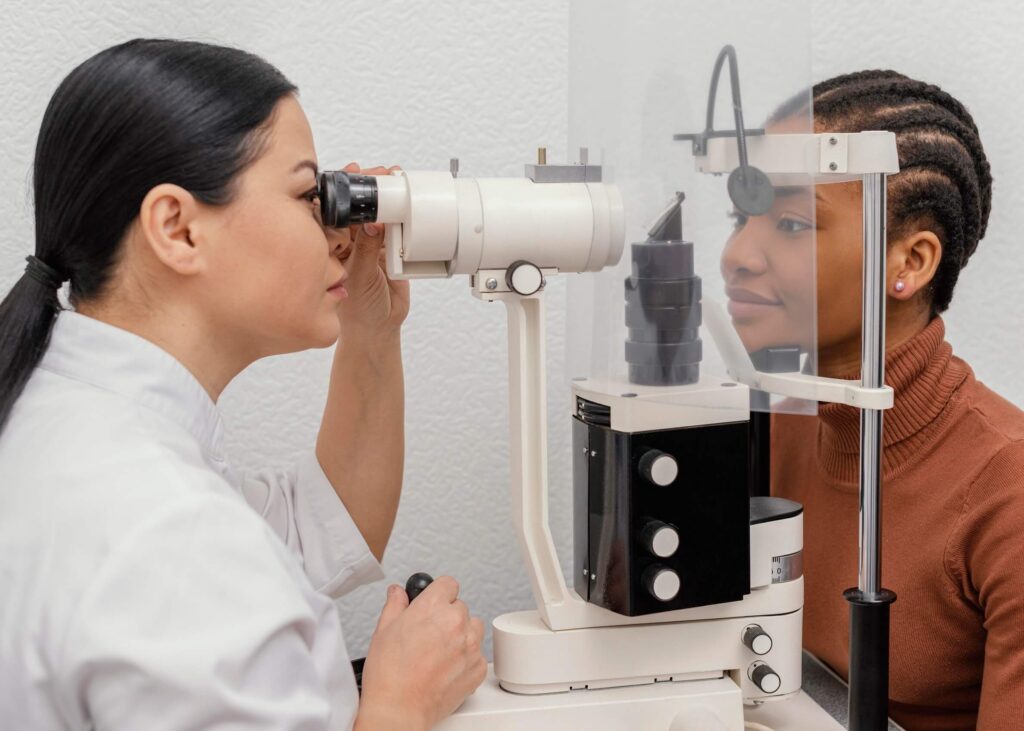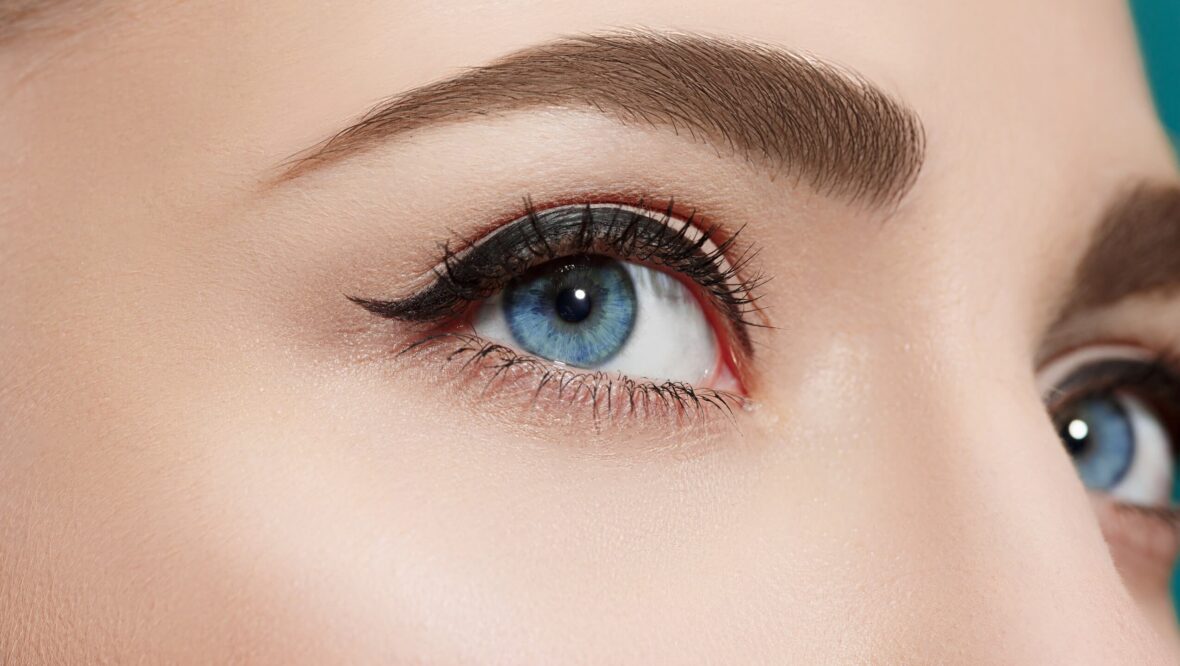It’s easy to forget about your eyes, but they’re one of the most important parts of your bodies. You don’t have any beauty treatments or spas that can help you to improve your vision, so it’s up to you. Make sure you take care of your eyes every day and you’ll be in good shape for the rest of your life. They’re delicate and need special attention, so it’s important to give them the attention they deserve.
If you’re working in certain types of jobs, you’re more likely to get hurt in your eyes. From construction and manufacturing to mining, electricians, plumbers, welders, lab workers, and desk workers who spend a lot of time in front of computers, it’s important to take good care of your eyes. People who work in these industries are more at risk of getting an eye problem or eye injury for a few reasons, like not wearing the right glasses and not having the right type of glasses.
This article will review, 8 Natural ways to improve your eye health, and how to protect it.

8 Natural ways to improve your eye health:
Don’t underestimate the power of your eyes. Follow these natural ways to keep your eyes healthy.
1. Avoid Smoking:
Smoking is not only injurious to one’s overall health, but also to the health of the eyes. It has been linked to a variety of eye-related diseases, such as cataracts and glaucoma’s, as well as damage to the optic nerve, which can lead to cataracts and other medical issues. To ensure optimal vision, it is essential to abstain from smoking in order to prevent further damage to the optic nerves. If you have already tried to quit smoking, it is recommended that you continue to do so, as the more attempts you make, the more successful you will be. If you are unsure of how to quit, it is recommended to seek advice from your doctor.
2. Use Safety Eyewear:
It is recommended to wear protective eyewear or goggles when exposed to dangerous or airborne materials, both at work and at home. Additionally, eye injury can be caused by activities such as ice hockey, lacrosse, and other sports. To ensure the safety of one’s eyes, it is recommended to wear eye protection, such as a helmet with a protective face mask or a pair of polycarbonate goggles.
3. Wear UV-Protected Sunglasses:
The sun’s UV rays can cause various diseases and vision problems, such as macular degeneration, cataracts, and more. To protect your eyes from the sun’s harmful UV rays, it’s important to choose sunglasses that block 99 percent or 100 percent UVB rays. Some sunglasses, such as wraparound and polarized lenses, reduce glare but don’t offer extra protection. Contact lenses also protect your eyes from UV rays, but they don’t block 99 percent of UVB rays, so it’s still important to get them.
The bright harsh light entering your eye for long periods of time can damage your cornea. Sunglasses protect your eyes from dry air, dust particles, and add to your coolness.

4. Follow a Healthy Diet:
It is essential to maintain a balanced diet in order to maintain overall health and, in particular, to maintain eye health. By consuming a balanced diet, one can reduce the risk of developing age-related vision problems such as Macular degeneration, Cataracts, and Type 2 Diabetes, which is the most prevalent cause of blindness in adults. To ensure that one is eating a balanced diet, it is recommended to include foods that are high in Omega 3 fatty acids, Vitamin C, and vitamin E, as well as green vegetables such as spinach and kale, and protein sources such as chicken and soybeans.
Additionally, maintaining a healthy weight is essential for preventing obesity, which is a major contributor to type 2.
5. Proper Care of Contact Lenses & use eye drops:
If you wear contact lenses, you need to be extra careful with your eyes. Don’t wear them for too long, and try not to come into contact with dust or other particles that could cause an infection. If you’re constantly staring at screens, it can cause dry eyes, so the best way to deal with that is to use an eye drop. But don’t just use one eye drop for everyone – talk to your eye doctor first to make sure it’s right for you. And don’t forget to check the expiration date before using any products.
6. Look Away From the Computer Screen:
Excessive use of computers or phones for long periods of time can lead to blurry vision, difficulty focusing, dry eyes, headaches, and pain in your neck, back, or shoulders. To protect your eyes, make sure you have the right prescription for glasses or contacts, and if your eye strain isn’t getting better, talk to a doctor about getting new glasses. Move the screen so you can look down at the top, and try to avoid being too close to windows or lights. Pick a comfortable chair and position it so your feet are on the floor, and try to blink more or use artificial tears to help dry out your eyes.
Try to take a break every 20 minutes, and try to look 20 feet away every 20 seconds. Make sure to get up every 2 hours for at least 15 minutes.
7. Take Frequent Breaks From the Screens:
We’re living in a digital age, so it’s no surprise that people spend a lot of time in front of screens. Whether it’s a laptop, phone, tablet, or TV, it’s all too easy to put too much pressure on your eyes. To keep your eyes healthy, it’s best to take breaks when you’re reading or using a computer. That way, you can look away from the screen and focus on something far away.

8. Get Regular Eye checkups:
It is important to have an eye exam at least once a year, even for children. This is because an eye exam can help to protect your eyes and ensure that you are seeing as well as possible. Eye exams can also detect diseases that do not have symptoms. Therefore, it is important to have them done as soon as you can.
A comprehensive eye exam includes:
- Examinations of your medical history
- Vision tests to determine if you are nearsighted or have presbyopia
- Eye pressure tests External and microscopic examinations
- Eye dilation tests
Eye examination needs, if you have any of the following symptoms:
- Eye strain
- Dryness
- Irritation
- Stringy discharge
- Eye fatigue
- Heavy eyelids
- Red eyes
- Contact lens discomfort.
What are Types and causes of eye injuries?
For some people, it’s important to be extra careful when exposed to everyday dangers like UV rays, chemicals, and foreign objects.
UV rays can cause short-term and long-term damage to your eyes.
- Short-term effects can be like sunburn on your skin, leaving you with burns on your eyes.
- Long-term damage can cause problems like macaraches, vision loss, and skin cancers around your eyes.
Toxic chemicals can also cause injury, like oil or grease burns from steam or flying wood and metal chips that enter your eyes.
Eye diseases are mostly seen in healthcare workers, lab technicians, and janitors who spend a lot of time looking at screens. This can put a lot of pressure on your eyes, which can lead to irritation and physical pain. Computer Vision Syndrome is a common symptom, and it can cause blurry vision, fatigue, and headaches.

How to protect your eyes at work?
According to a survey by the Bureau of Labor Statistics (BLS), almost three-quarters of workers who had eye injuries said they weren’t wearing eye protection because they didn’t think it was necessary. It’s estimated that almost 90% of injuries in the workplace could be prevented if safety eye gear was used properly. To avoid vision problems that can be permanent, it’s important to follow certain safety rules and precautions.
If you’re in a job that requires you to be exposed to hazardous materials like dust, dust, and flying objects, you’ll need to wear protective glasses with a side shield. These glasses look like regular glasses but are designed to provide extra protection. They have stronger lenses and frames than regular glasses and are made of materials like plastic, polycarbonate, and Trivex which is the best for safety. To avoid dry eyes, it’s important to practice good eye care and adjust your seating position and posture.
You should also look into the distance and blink more often. And if you’re working on a computer for a long time, there are easy fixes that can help improve your eyesight.
Conclusion:
Taking good care of your eyes in natural ways is essential for your overall health and well-being. Your eyes are one of the most important parts of your body, and the health of your eyes can have a huge impact on your day-to-day life and how you experience the world around you. Whether it’s going to your eye doctor, eating a healthy diet, shielding your eyes from UV rays or making sure you’re using your screen time responsibly, it’s important to take proactive steps to protect your vision. By setting your eyes at the top of your priority list, you can make sure they stay healthy and can continue to serve you well for the rest of your life.
FAQ
How to improve eyesight naturally?
If you want to see better, it’s important to start taking care of your eyes. Eating a balanced diet that’s rich in vitamins, minerals, and antioxidants, plus foods with omega-3s, can help keep your eyes healthy. Doing regular eye exercises can help strengthen your eyes and reduce strain. And don’t forget to look at something 20 feet away every 20 seconds when you’re on the go. Finally, make sure you’re getting enough sleep and managing stress – these are key to keeping your eyes healthy and seeing clearly.
What are the best foods for eye health?
The best foods to eat for your eyes are those that are rich in essential vitamins and minerals that help maintain your vision and help protect your eyes from age-related diseases. Leafy greens such as spinach and kale are high in lutein, a type of vitamin, which helps protect your eyes from eye diseases. Lutein is a type of vitamin that helps keep your eyes healthy. Vitamin C, found in oranges, strawberries, and other fruits and vegetables, and vitamin E, found in almonds, sunflower seeds, and other sunflower seeds, can help keep your eyes healthy and reduce your risk of developing eye diseases.
Omega-3 Fatty Acids, found in salmon, walnuts, and other foods, help keep the integrity of your retina and your eyes healthy.
How to get rid of dry eyes?
If you’re dealing with dry eyes, there are a few things you can do to help keep your eyes hydrated and comfortable. Artificial tears or eye drops can help by replenishing your tear film. Keep your home humid, especially in places that are dry or hot, so your tears don’t evaporate too much. And don’t forget to follow your eye hygiene routine, like using warm compresses to unclog the oil glands near your eyelids. If your eyes are still dry, it’s a good idea to see an eye specialist. They can help you figure out what’s causing the dryness and give you a personalized treatment plan.
What are the symptoms of cataracts?
Cataracts come in many forms and can affect your vision over time. Some of the most common symptoms of a cataract include:
- Blurred or cloudy vision
- Increased sensitivity to glare
- Difficulty seeing in the dark
- Faded or yellowing colors
- Some people experience double vision (seeing in one eye and not seeing in the other)
You may need to change your eyeglass prescription more frequently as your cataracts progress.
How to prevent eye strain from screen time?
If you’re looking to avoid strain on your eyes while using your screen, there are a few things you can do to make it easier.
- First, try to stay away from the screen for 20 seconds every 20 minutes. That way, your eye muscles will be relaxed and you’ll be able to focus on something else.
- Second, make sure you have good lighting in your office. That way, the screen won’t be as bright and the contrast won’t be as strong.
- Third, adjust the brightness, text, and contrast of your screen to make it easier to read.
- And lastly, try using blue light filters or software to help reduce the effects of screen time on your eyes.
Reference used:
https://www.webmd.com/eye-health/good-eyesight
https://pharmeasy.in/blog/eye-health-ways-to-take-care-of-your-eyes/





